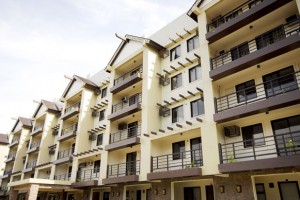Philippine real estate in a bubble?
By Randell Tiongson on June 7th, 2014QUESTION: I am considering purchasing a real estate property but I am concerned about news that the Philippine property market is already experiencing a bubble, how true is this?—Name withheld upon request, asked via e-mail
Answer: There have been many reports and views that the Philippine economy in general is in a bubble, which probably precipitated concerns about our real estate industry being in a bubble as well. I wrote a counter-point in this column last December debunking the bubble scare. I suppose it is but natural for many to be concerned with the property market as the Philippines has been seeing a lot of growth in real estate development in the last few years.
For the property sector to be in a bubble, there must be gross imbalance between supply and demand. Very high demand with very limited supply will cause prices to be very high; by contrast, high supply with very low demand will cause prices to stumble. Secondly, property prices must be artificially high whereby people are just buying pieces of property for speculation, not for use. Lastly, the use of property being developed is too low. Very low loan rates are seen as a culprit for property bubbles because those drive up demand, which drive prices up too soon, but can’t be sustained thereby causing a crash.
 While the present condition of our property market is far from ideal, many experts argue that we are far from being in a bubble. During the launch of an Asian magazine, Property Report, I had the chance to hear from experts on their views of the so-called property bubble. Terry Blackburn of Property Report feels the local property market is extremely good and that our price is still much lower than those in Thailand and Malaysia. Cynda Jarabata, a hotel development expert, agrees that local prices are still good with a very good upside. Jaime Cura of Creba says that on a macro level, we are far from a bubble due to the curbing efforts of the Bangko Sentral, although he says there may be some price corrections in the future. Cura also adds that there is a trend of development outside the congested Metro that can usher urban renewal—conditions that will benefit the property sector. He, however, also laments on the government’s poor master planning which hinders better development.
While the present condition of our property market is far from ideal, many experts argue that we are far from being in a bubble. During the launch of an Asian magazine, Property Report, I had the chance to hear from experts on their views of the so-called property bubble. Terry Blackburn of Property Report feels the local property market is extremely good and that our price is still much lower than those in Thailand and Malaysia. Cynda Jarabata, a hotel development expert, agrees that local prices are still good with a very good upside. Jaime Cura of Creba says that on a macro level, we are far from a bubble due to the curbing efforts of the Bangko Sentral, although he says there may be some price corrections in the future. Cura also adds that there is a trend of development outside the congested Metro that can usher urban renewal—conditions that will benefit the property sector. He, however, also laments on the government’s poor master planning which hinders better development.
Jules Kay of Property Report emphasizes that growth will ultimately be affected by quality, design and architecture, especially for high-end developments.
When we look at the property sector, we should also look at it from a segmented perspective. Data show there is a huge backlog in the low to medium housing markets, a condition that will make a bubble environment unlikely. Further, while interest are historically low, it is still not that low that will make borrowing for housing very cheap—the rates of 6 to 7 percent are far from being cheap and are, therefore, a deterrent to speculative investing. Buyers are still largely end-users for the low to medium segments, which are purchased as homes and not as investments. There seems to be a concern about the rapid development in the high-end segment, particularly the condominium market. However, upon a closer look, market conditions in this segment are largely dictated by location and the way they are developed. The premium locations are still very bullish but there has been a concern about developments in the secondary streets of Metro Manila.
Investment expert and fund manager Marvin Fausto does not see any bubble in the property market as well. He says demand for property in general continues to be strong with reservation sales at double-digit growth while prices remain firm. Further, over leverage will be the key indicator should there be a brewing bubble and that is far from the Philippine situation.
While many feel there has been too much construction of commercial buildings, there is actually a backlog for offices driven by the growth of the business outsource processing industry and growth of businesses in general with the growing economy. Bubbles are evident when there is no uptake of projects being constructed, but the situation is demand continues to be high and supply has been lagging.
Rental prospects continue to grow which is also a good indication of a sustainable growth of the property market.
NPLs (non-performing loan) ratios of banks are very low and continues to decrease, a counter indication of a property bubble.
If you are purchasing a real estate property for your use, a bubble should not be a concern for you since you will not be unloading the property anytime soon and capital growth is only a secondary benefit. If you are purchasing a property purely for investment purposes, I suggest that you review your investment objectives and diversify, with real estate as one of the avenues for you to grow your money … that’s a prudent course of action.

